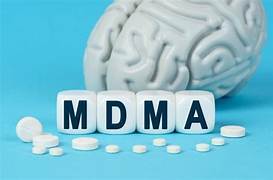How Can I Verify the Purity of MDMA I Bought Online in Canada?
Posted By mdma online
Body
MDMA in Canada: Buy MDMA, Lavender Stone MDMA, Green Moonrock MDMA
MDMA is a synthetic drug that has stimulant and buymdmaonline properties. It is also known as Ecstasy, Molly, or X. MDMA is usually taken in pill form, but it can also be snorted, smoked, or injected.
MDMA is often used at nightclubs, music festivals, and rave parties. It is also sometimes used as a party drug or taken to enhance the experience of sexual activity.
MDMA can produce feelings of euphoria, increased energy, empathy, and feelings of intimacy. It can also cause hallucinations, delusions, and paranoia.
MDMA is illegal in Canada. Possession of MDMA can result in a fine or imprisonment. MDMA is also a controlled substance in the United States.
There are a number of risks associated with taking MDMA, including:
• Increased heart rate and blood pressure
• Dehydration
• Kidney failure
• Liver failure
• Seizures
• Coma
• Death
MDMA is a dangerous and illegal drug. If you or someone you know is using MDMA, please seek help from a medical professional or drug rehabilitation program.
What is MDMA?
MDMA is a synthetic drug that alters mood and perception. It is a member of the substituted amphetamine class of drugs and has stimulant and hallucinogenic effects.
MDMA was first synthesized in 1912 by a German chemist named Anton Köllisch. It was not until the 1970s that MDMA began to be used recreationally. MDMA is often referred to as "ecstasy", "molly", or "XTC".
The effects of MDMA include feelings of euphoria, increased energy, empathy, and feelings of intimacy. Some of the short-term side effects of MDMA use include anxiety, panic attacks, and paranoia. Long-term side effects of MDMA use include memory problems, depression, and anxiety.
MDMA is classified as a Schedule I drug in the United States. This means that it has a high potential for abuse and is not currently accepted for medical use.
The Different Types of MDMA
MDMA is a psychoactive drug that has similarities to both the stimulant amphetamine and the hallucinogen mescaline. MDMA is classified as a Schedule I drug, meaning that it has a high potential for abuse and is not considered safe for use in humans.
There are three different types of MDMA that are commonly used:
1. MDMA powder
2. MDMA crystals
3. MDMA pills
MDMA powder is the most common form of the drug, and is usually snorted or ingested. MDMA crystals are a purer form of the drug, and are often used by those who want a more intense experience. MDMA pills are the least common form of the drug, and are usually taken orally.
The effects of MDMA vary depending on the type of MDMA that is used. MDMA powder generally produces a more mild experience, while MDMA crystals and pills can produce a more intense experience. The effects of MDMA typically last for 3-6 hours, but can last up to 12 hours.
The most common effects of MDMA include:
- feelings of euphoria
- increased energy
- increased alertness
- increased sociability
- decreased anxiety
- increased empathy
MDMA can also cause adverse effects, such as:
- increased heart rate
- increased blood pressure
- nausea
- vomiting
- diarrhea
- muscle cramping
- teeth grinding
- blurred vision
- chills
-sweating
- anxiety
- paranoia
- depression
- aggression
- psychosis
MDMA is often used in combination with other drugs, such as alcohol, cocaine, or ketamine. This can increase the risk of adverse effects, as well as the risk of overdose.
Those who use MDMA regularly can develop tolerance to the drug, as well as dependence. This can lead to problems with work, school, and personal relationships.
If you or someone you know is struggling with MDMA abuse, please reach out for help. There are many resources available to those who need assistance.

















Comments